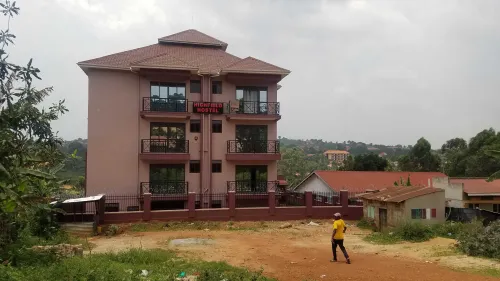By Asenath Were
Accommodation is one of the basic components in a student’s academic journey. Over the years the Uganda Christian University (UCU), accommodation industry has transformed. The once small number of hostels has expanded into a booming and highly competitive industry, which is a reflection of the rising demand from students for better living standards.
Pamela Tumwebaze, the UCU Director Of Students Affairs and alumni in the early 2000s says that the number of students at that time was less than it is now and so were the accommodation facilities.
“UCU had only 8 small units that were used as hostels,” she added. According to her, some of these units include the academic building, postgraduate, honours college, and tech park.
However, as UCU’s student body expanded, so did the need for more accommodation. This demand prompted local entrepreneurs to invest in the construction of new hostels, each striving to offer more than the last.
Today, the hostels within and around UCU are characterised by modern architecture and a wide range of services designed to cater to students’ needs. These include self-contained rooms, security 24 hours a day, and, in some cases, meal plans.
Added features like Wi-Fi, private study spaces, and recreational facilities such as gyms together with larger, cleaner, and more secure rooms along with improved security measures can be found in some of the newer hostels.
Tumwebaze stated that hostels affiliated with UCU work with their rules and policies, while those not affiliated with the university are independent. “We look at them to see if they are secure and safe for the students because when students get problems, we are usually the ones who are supposed to come in and support them,” Tumwebaze says.
“We are now coming up with a programme to change their security staff and make sure they are up to speed, and we are working with Uganda police on that. Our Officer in Charge (OC) is very cooperative; he has shared his contact details with us, we also go for orientation meetings and work with the police and local leadership to make sure the students are protected,” she pointed out.
Rogers Jimmy Kiisa, the UCU Nsibambi Warden, stated that the students’ lives have greatly improved regarding their security and welfare. “We can say that due to the awareness that has been created, security has improved, thus the reduction in theft cases,” he says.
According to him, parents are now more confident about leaving their children in hostels because they witness the availability of good security on campus. “We have a police station at UCU as well as university security, so if students have issues, they can always report them there,” Kiisa highlighted.
“In terms of entertainment for students, some halls did not have a television, which has now been installed; they did not have games but that has been solved as we now have a pool table available,” he stated.
With all the improved amenities though, there are still some challenges faced. Scovia Apio, a third-year student offering a bachelor’s degree in Human Resource Management, says despite these advancements, because these hostels accommodate students from various backgrounds, there are behavioural issues such as theft, breaching of rules and regulations, and many more.
“Theft is rampant; people sometimes steal from our rooms and even take our clothes from the dry lines. There is no provision for incinerators in some hostels, especially those that were once regarded as boy’s hostels,” she said.
Apio therefore encourages her fellow students to be their own and their neighbours’ security to curb this problem. “You should be your first security, and your neighbours’ as well; if you see a stranger at the hostel, talk to them and find out what they are looking for,” she emphasised.
The evolution of hostels within and around UCU reflects broader student expectations and lifestyle changes. As the university continues to grow, likely, the demand for high-quality accommodation will only increase. The transformation of the hostels is a testament to the dynamic nature of the market for them in Mukono.


